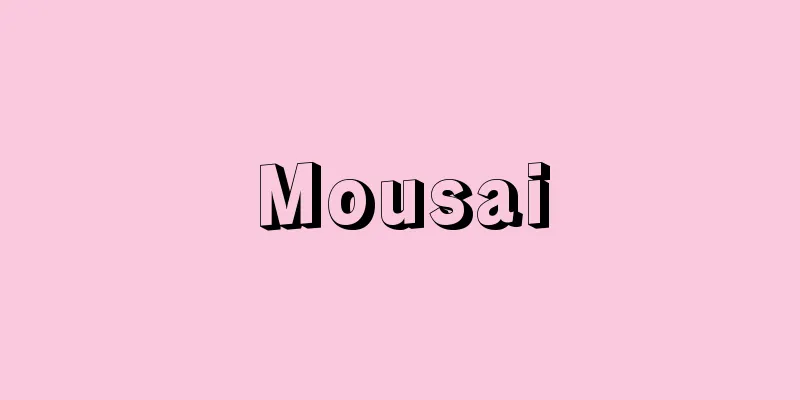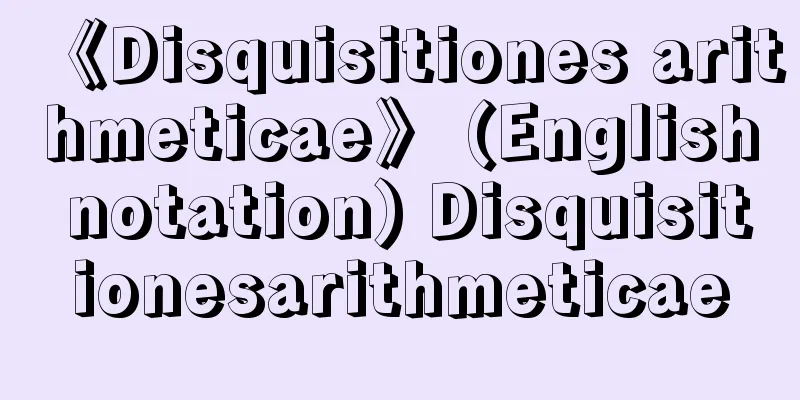Mousai

|
In Greek mythology, she was the goddess of poetry, literature, music, dance, and learning. The plural form is Mousai. In English, she is called Muse, and is the origin of the words music and museum. *Some of the terminology that mentions "Mousai" is listed below. Source | Heibonsha World Encyclopedia 2nd Edition | Information |
|
…ギリシア神話の,詩歌,文芸,音楽,舞踊,学問の女神。複数形はムーサイMousai。英語ではミューズMuseといい,music(〈音楽〉),museum(〈博物館,美術館〉)の語源。… ※「Mousai」について言及している用語解説の一部を掲載しています。 出典|株式会社平凡社世界大百科事典 第2版について | 情報 |
Recommend
Yenching University (English name)
A famous Chinese university run by an American Chr...
Oral cancer
A general term for cancers that primarily occur w...
Russell, Jene
...He was called the "Hollywood Casanova&quo...
Ptolemy, C. (English spelling) PtolemyC
…Ptolemaeus Claudius, also known as Ptolemy, was ...
Wusongkou - Wusongkou
…It is also called the Wusong River. The present ...
Shin Don (English spelling)
?-1371 A monk and politician from the late Goryeo ...
Jungo
…So, the unit of area has long been the square of...
grana stack
… The envelope consists of two membranes, the inn...
Photometer - light meter
In the narrow sense, it is a device that measures...
Second - nibanme
〘noun〙① To be second in order. Something following...
Yi Dynasty
[1] Abbreviation of "Lish Chosen (Yi Dynasty)...
Korean Independence League - Chosendokuritsudomei
An anti-Japanese national united front organizatio...
Aldrich, T.B.
…In 1896, Oliver G. Oliver and Schäfer EASchäfer ...
Meeting - to make
[1] (independent verb) Kuai-su (independent verb) ...
Black Hole
A celestial body with a surface (called the event ...









